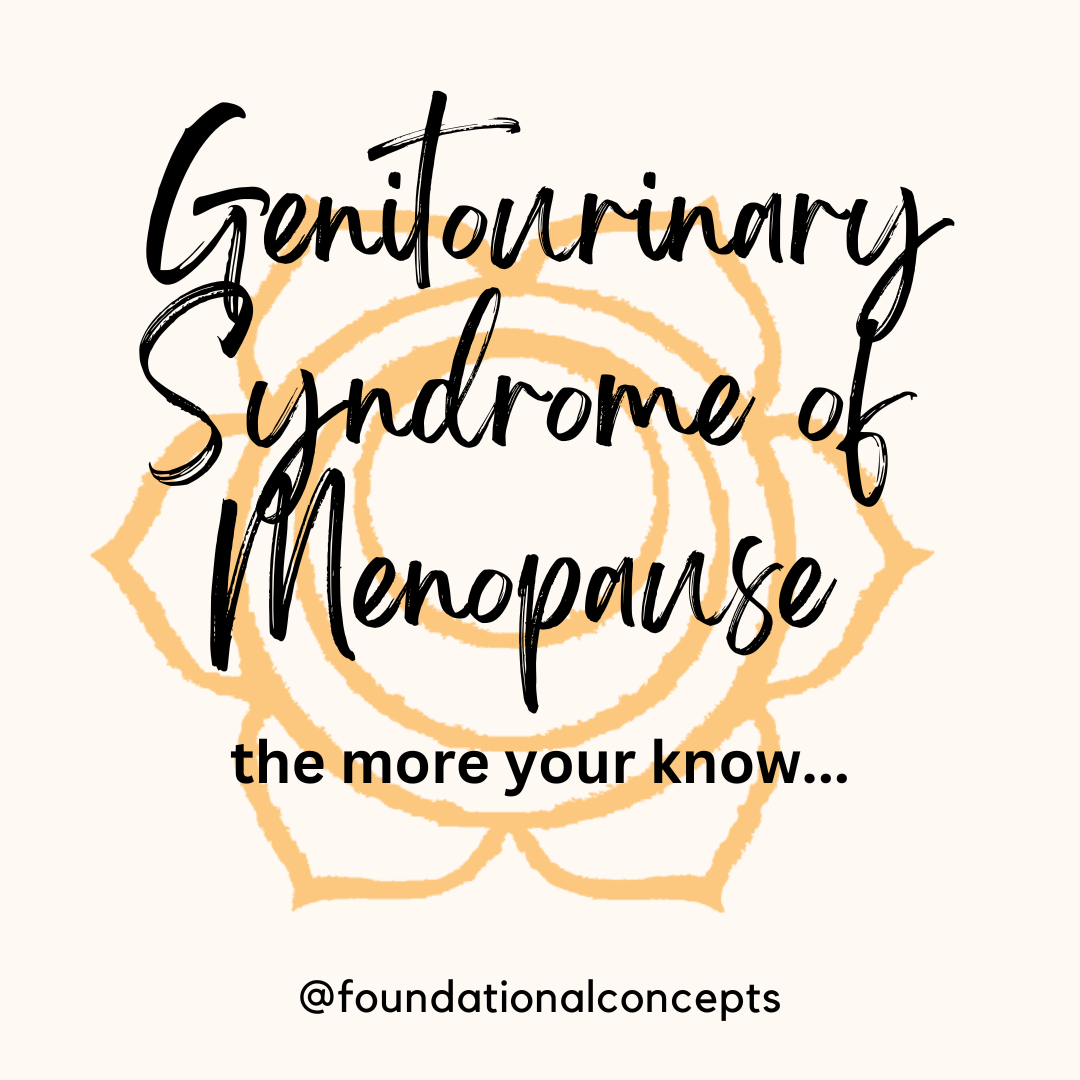Menopause is a point in time. It is when you have stopped having a period…

Genitourinary Syndrome of Menopause: the more you know…
Halle Berry was recently featured in People Magazine about perimenopause and the pain and vaginal dryness that she experiences with intercourse. Her primary doctor mistook her symptoms as herpes! Halle Berry Recalls Her Doctor Saying She Had the ‘Worst Case of Herpes’ He Had Ever Seen — but It Was Perimenopause (msn.com)
As women transition from regular periods to postmenopausal, 50-90% (!) develop genitourinary syndrome of menopause (GSM). GSM is caused by decreasing estrogen levels in the vulvovaginal region. This decrease in estrogen can cause vaginal dryness, pain with intercourse, difficulty urinating, soreness, itching, burning, and/or pain in vagina and vulvar region. These symptoms can often be mistaken, or mis-diagnosed as was the case for Ms. Berry. Let’s clear this up and learn a bit about GSM.
Due to this decrease in estrogen the tissues become thinner and more fragile. With intercourse, the tissue can tear or become irritated, causing more pain. Incontinence is also a common symptom with GSM due to decreased tissue elasticity contributing to decreased stability of the bladder and urethra. Poor bladder habits and tissue changes both can contribute to increased risk of urinary tract and vaginal infections. Many women don’t seek help and just assume that the vaginal pain and increased urinary leaking are just normal signs of aging.
The gold standard for treatment for GSM is estrogen—this can be through a patch, vaginal cream or a vaginal ring. Vulvar creams like vulvar balm (formerly v-magic) or coconut oil also help to protect the skin and improve the moisture in the vulvar region, decreasing irritation.
There are clear benefits of pelvic floor physical therapy for women with GSM by managing urinary incontinence, chronic pelvic pain, and dyspareunia (pain with intercourse).
One of the beauties of pelvic floor PT is the amount of education that we are able to provide our patients. We discuss menopause, the tissue changes due to decreased estrogen, and the treatment options that their medical providers have suggested. We share our knowledge base, and have the time to spend educating patients about the anatomy of the pelvic floor and how the muscles work, and how this relates to good bowel and bladder habits. We also talk about different lubricants, dilators if needed, and positions to decrease pain with intercourse.
When decreases in estrogen change the vulvar tissues, the muscles respond to this tissue discomfort. The pelvic muscles respond with guarding and they tighten because of the discomfort in the tissues. Muscles that are too tight cause leakage. This can also lead to poor bladder and bowel emptying and pain with vaginal intercourse. Often, we will see post-menopausal women who have been told to do Kegels for this leakage. However, when the pelvic floor is tense and unable to elongate, repetitive strengthening exercises is not the answer.
Every women who is going through peri-menopause and menopause experience it differently. A pelvic floor physical therapist can determine what is going on with you, individually and help you devise a plan to care for your body and ease you through this stage of life without urinary leakage, pain or discomfort. You do not have to just suffer with the symptoms of GSM, there are affordable, manageable options.
If you are experiencing vulvovaginal discomfort after menopause, it is common but not normal. Please talk to your doctor and find a pelvic floor physical therapist to help you find treatment options. We offer a free, 15 minute phone consultation to answer questions and make sure you are in the right place to help you heal.




